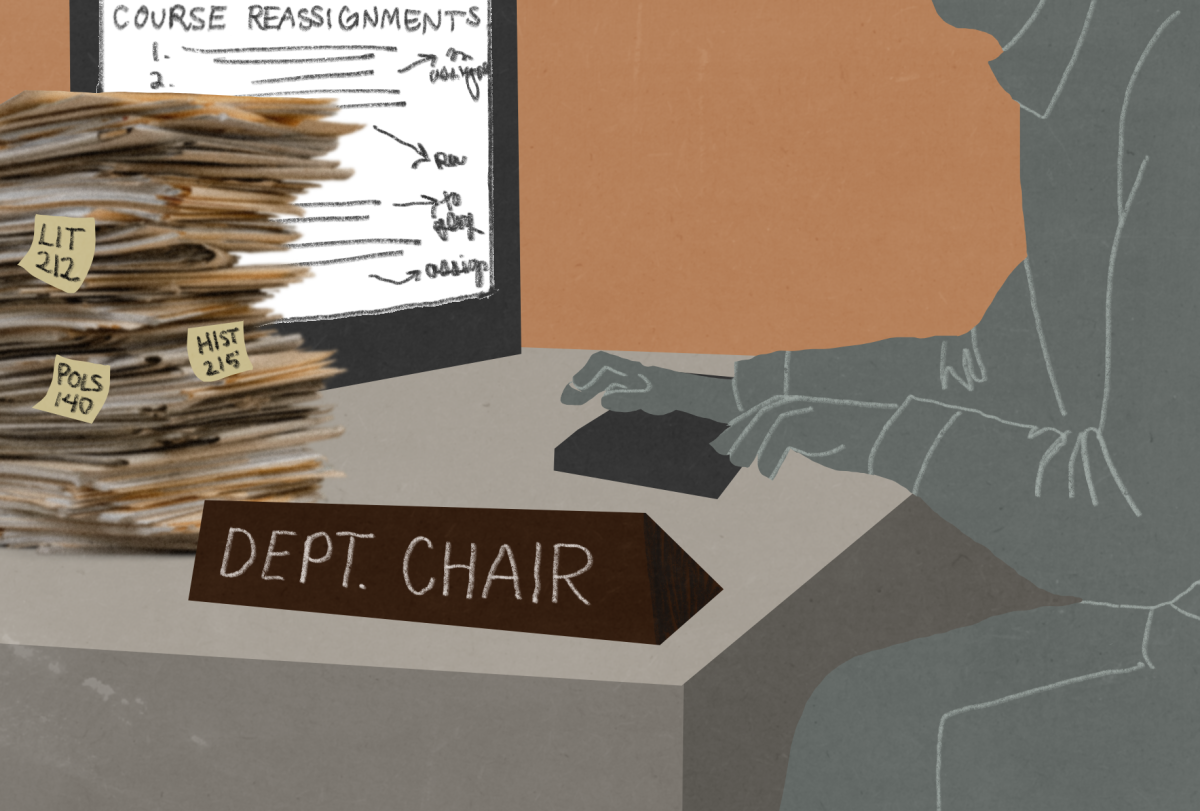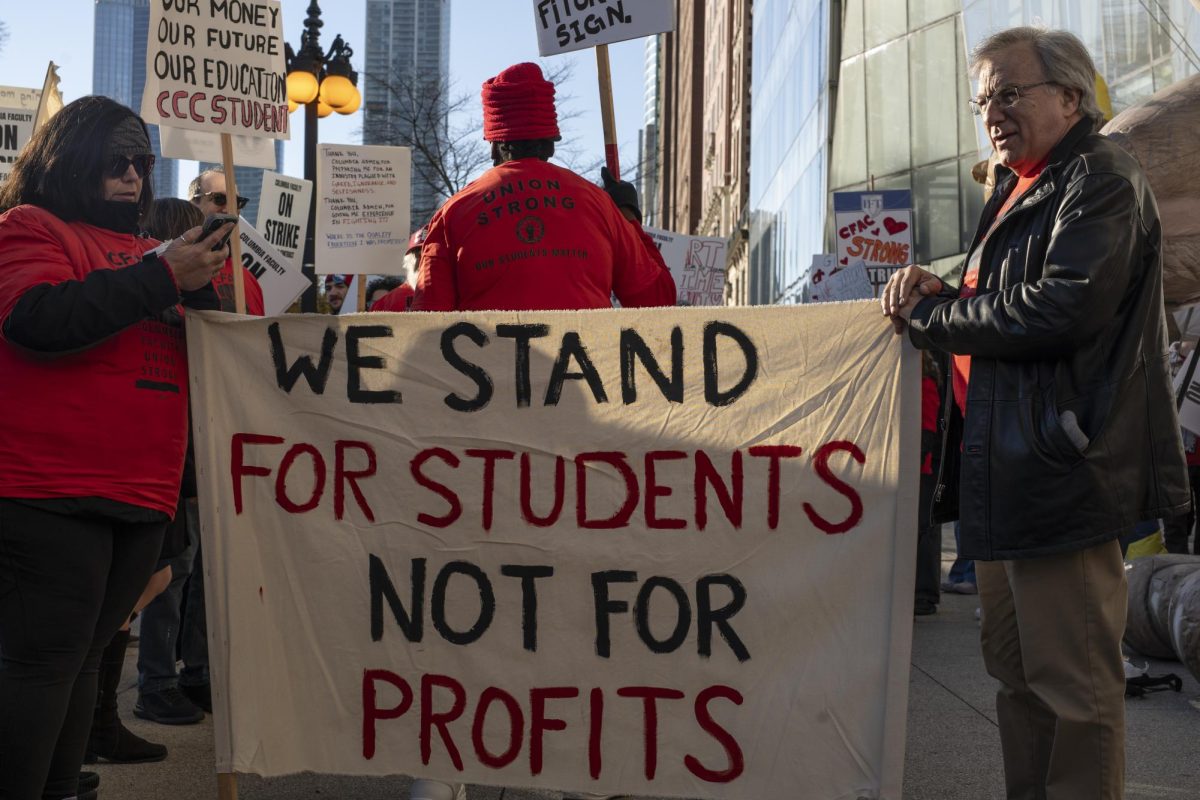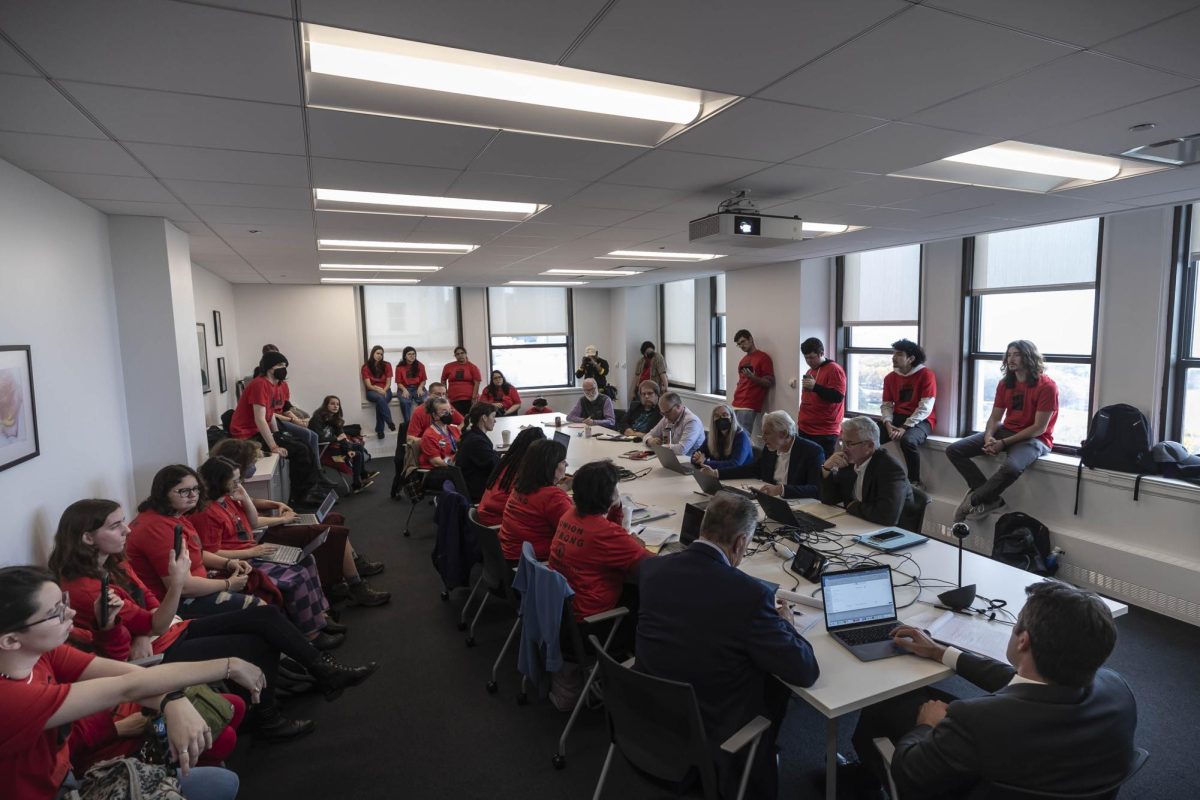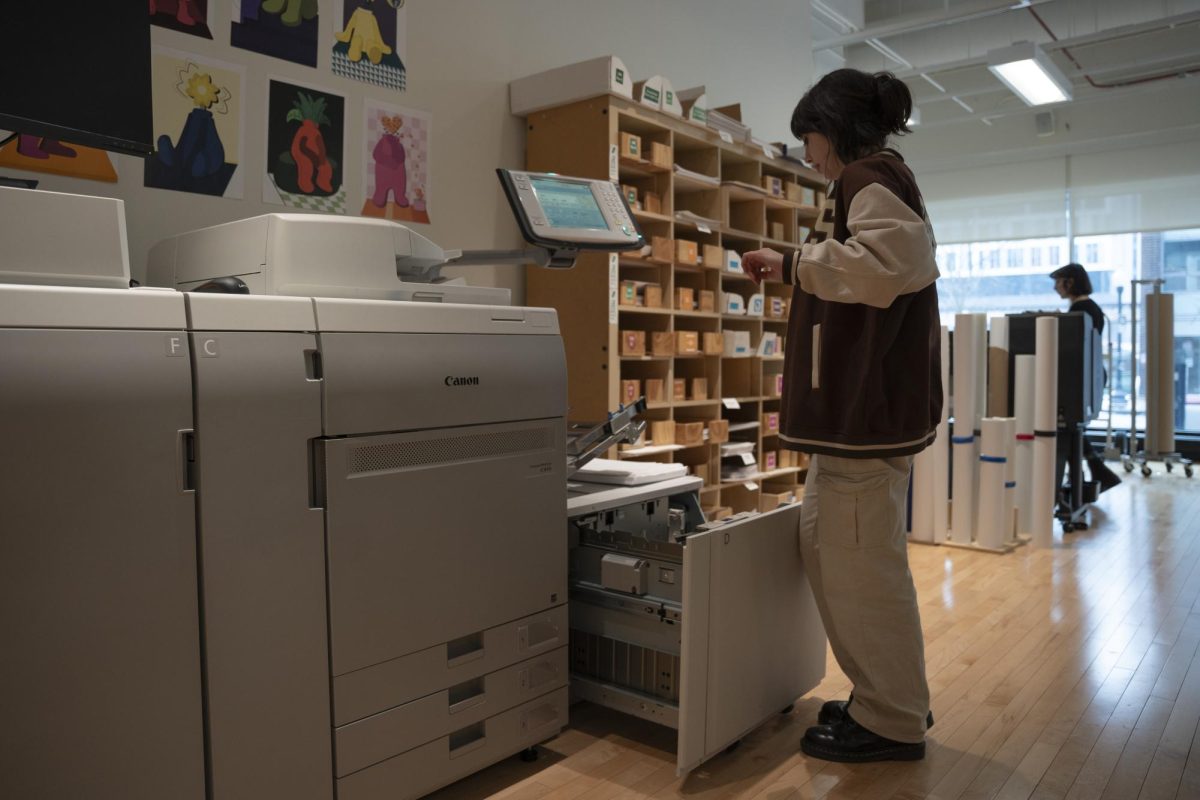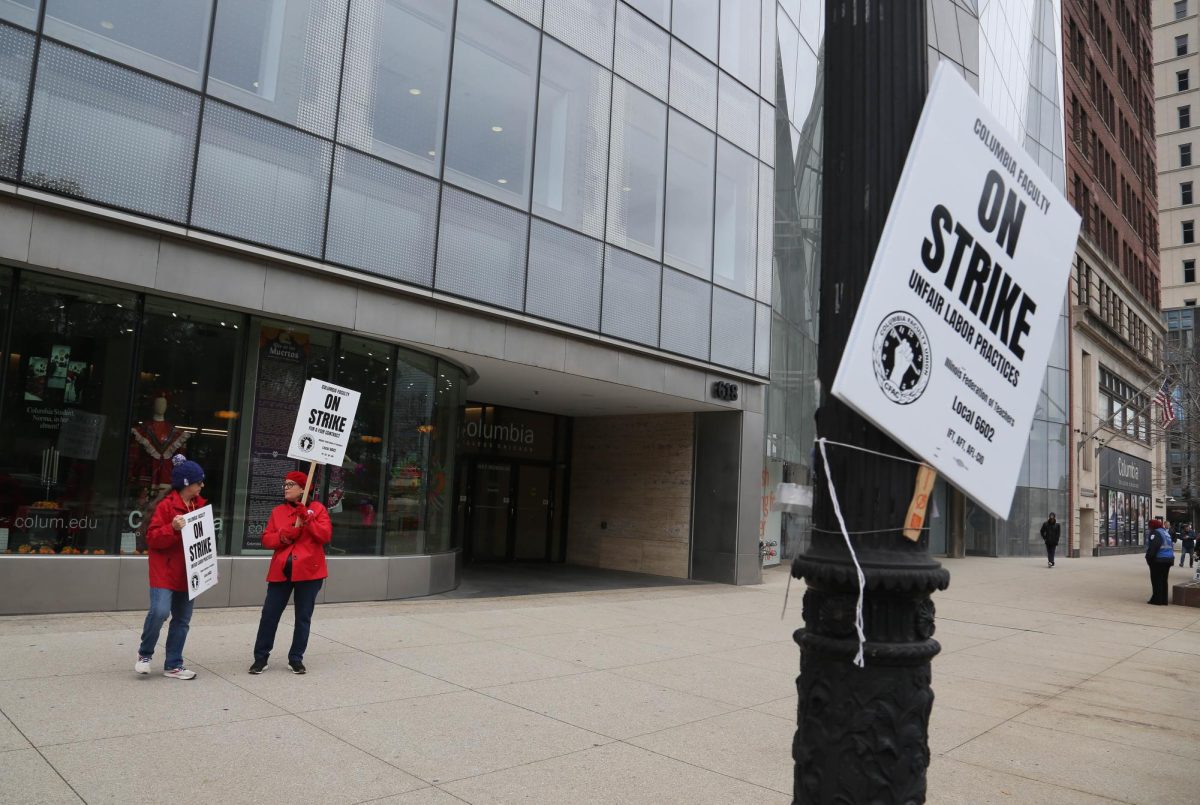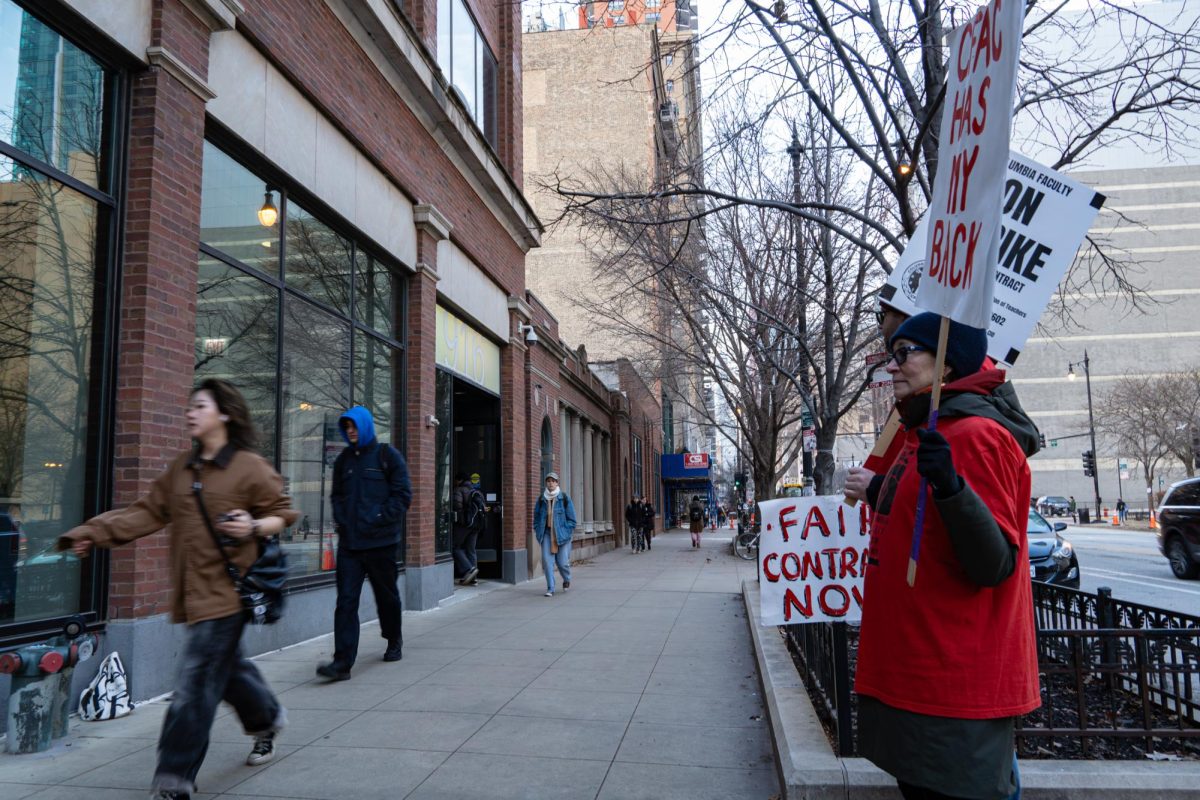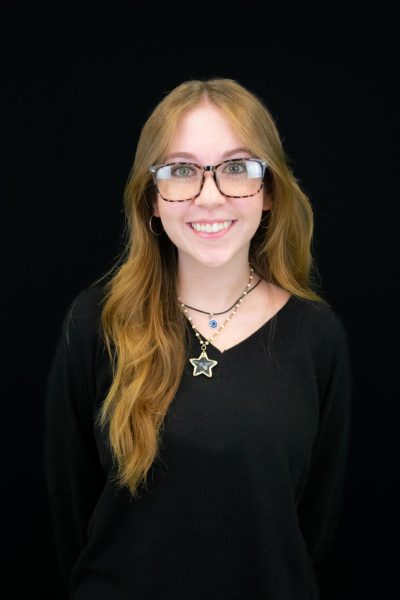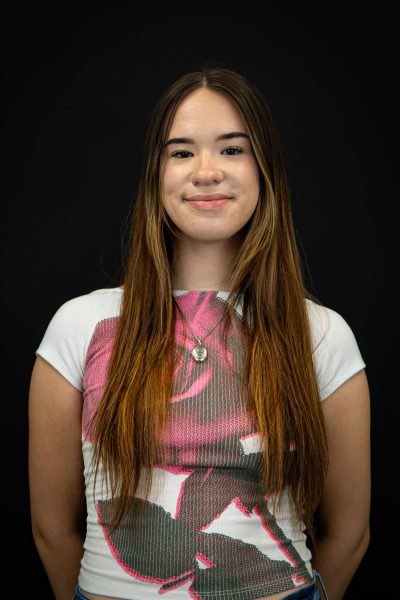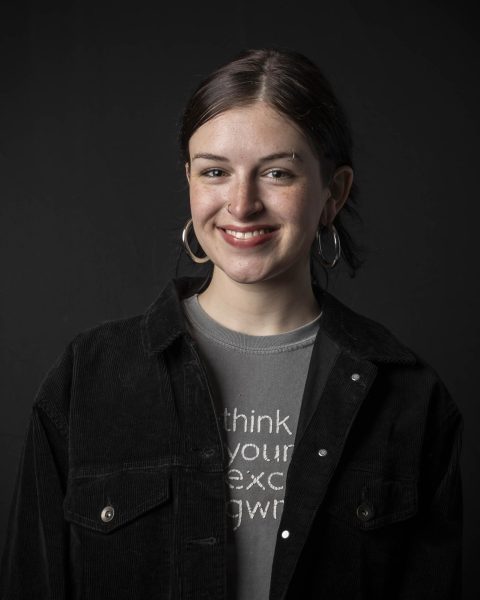As the part-time faculty strike enters a sixth week, nearly half of the college’s 584 part-time instructors have returned to the classroom – or never walked out in the first place.
Currently, 237 part-time instructors are teaching and 347 remain out on strike, said Lambrini Lukidis, associate vice president of Strategic Communications and External Relations.
The college provided the number in response to a Chronicle inquiry,
“As soon as my access to Canvas was revoked, I made the decision to return to the classroom because of the continued disruption and stress put on my students,” said a part-time instructor who asked not to be named due to “the uncertainty of fines or penalties from the union.” They said their access was reinstated after a few days of communication with their department head.
The part-time instructor said they have not had trouble accessing Canvas since.
The Columbia Faculty Union has been on strike since Oct. 30 over cost-cutting measures the college is implementing to address a $20 million budget gap.
The strike is one of the longest adjunct walkouts in U.S. history, and both sides have now agreed to a federal mediator to try to resolve their outstanding issues.
It is not entirely clear what is holding up an agreement. The union originally went on strike over increased class sizes and cuts to the course catalog.
On a Zoom call with students, part-time instructors and parents on Sunday night, Dec. 3, Union President Diana Vallera said the union remains on strike over three core issues: wanting to be contacted by the college before decisions are made, maintaining smaller class sizes with more sections and “maintaining core curriculum.” In the Zoom meeting, Vallera said it is “not about money.”
The college has tried to move on with the semester despite the strike, reassigning courses taught by striking part-time faculty to some of its 221 full-time faculty members or others.
Many students have told the Chronicle they are relieved to be able to finish the semester. But others have reported issues with their classes or instructors, including a change in format or different meeting times. Some students also have questioned the expertise of the replacement teachers.
An email on Sunday, Dec. 3 from the college’s deans was sent out to address the “confusing information floating around regarding the ending weeks of the semester.”
Part of what the email said:
- Department chairs assigned part-time faculty not on strike, full-time faculty and newly hired instructors to help finish the semester in certain classes.
- Many faculty members are teaching classes that they have previously taught.
- Classwork format is changing to help finish the semester.
- Students should attend class for the remainder of the semester.
Junior journalism major Mari Moore received an email that her “History of the Future” course, taught by a part-time instructor before the strike, would switch to asynchronous with a replacement teacher. However, Moore said no new content has been posted to Canvas – and she has received no instruction.
The instructor now listed on the course is C. Richard King, professor and chair of the Humanities, History, and Social Sciences department.
“The situation has been very annoying and stressful,” Moore said. “You have a group of students that were ready to do the work and finish the last few weeks of this course, yet we haven’t heard anything back from anyone about who will be teaching, what class will look like, or any final projects.”
King did not respond to an email seeking comment.
Nick Wagenblast, a senior audio arts and acoustics major who works at the equipment cage in the basement of the 33 Ida. B. Wells building, said he saw students more frequently before the strike began.
“There haven’t been many classes going on, and we barely rent out equipment,” Wagenblast said. “There’s some kids that still come down and get equipment to either do personal projects or do stuff for classes that are now, you know, are back in session, but other than that, it’s been pretty dead.”
Some departments have been more impacted than others by the strike. Audio Arts and Acoustics is one of them.
Senior Audio Arts major Luc Hedstrom said three of his classes stopped meeting during the strike.
Each of the courses now has a different department chair listed as the “instructor of record” in the course catalog.
Hedstrom has heard “very little” since the classes were reassigned.
On Nov. 21, the union shared a video on its strike-related Instagram account that raised the issue of how many classes department chairs were “taking on” for striking part-time instructors. One example showed a department chair listed on 54 different courses.
The Chronicle independently reviewed the course catalog and also found department chairs listed on multiple courses. Jeanne Petrolle, interim chair of English and Creative Writing, was the faculty member listed on 54 courses. Peg Murphy, chair of Communication, was listed on 36 courses, and King was listed on 24, including most of the foreign language classes.
Several chairs told the Chronicle they were not personally teaching the courses but only supervising. In some cases, the chairs were listed instead of a part-time faculty member to protect the identity of instructors not honoring the strike. At the start of the strike, the union threatened fines and other disciplinary action if part-time faculty crossed the picket line.
Sutherland is listed as the instructor on 21 classes, including one that Hedstrom, the audio arts senior, is taking this fall. He replied to an email from the Chronicle but said he did not have time to talk.
Hedstrom said three of his classes have not met with replacement instructors, all department chairs listed in the catalog.
The part-time faculty member, who asked to not be named, has said they have seen students feeling “stressed beyond belief” and “uncertain about their paths at Columbia.”
First-year film and television major Alex Hampton had two classes affected by the strike but neither were connected to his major. One of his striking teachers was replaced by another instructor, which he said feels “wrong.” His other class has gone asynchronous, with a replacement teacher.
“I had built up a certain relationship with my professors, and now, not only having a different professor but having one that I don’t have a connection with, has made it really hard to get back into classwork,” Hampton said.
Additional reporting by Olivia Cohen.


